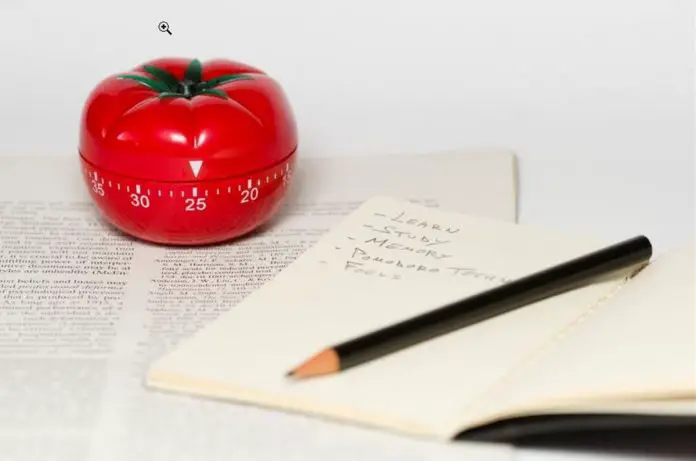Utilizing the Pomodoro Technique for Effective Practice
Many musicians struggle to get the most out of their practice time. With a seemingly endless list of things to cover, it’s all too easy to end up spending a couple of hours glossing over things aimlessly without actually learning anything!
One of my favourite ways to get the most out of my practice sessions is the Pomodoro Technique. Although not specifically aimed towards musicians, it is versatile enough that it can be easily adapted to be an efficient practice tool.
Rest is crucial to efficient and productive practice, as it allows the mind and body to process what it’s just learned. Christian Lindberg devised a crazy looking practice schedule in his 20’s when he was preparing to be a soloist, but when you look closer it actually follows the same principles of alternating practice and short breaks with occasional long breaks:
I gradually built it up from 4 hours a day divided into 12 sessions of 24 minutes when I was 20, up to 6 hour a day between 22 and 25 also 12 sessions, but 30 minutes per session.
When practicing 12 times 30 minutes you really have to spread it over the whole day. I used to do 7-7.30, 8-8.30, 9-9.30, 10-10.30, break, 13.00-13.30, 14.00-14.30, 15.00-15.30, 16.00-16.30, break, 18.00-18.30, 19.00-19.30, 20.00-20.30, 21.00-21.30… It was very heavy days, and it took hard work and build up to even be strong enough for so much practice so be careful!!! – C.L
What is the Pomodoro Technique?
The Pomodoro Technique is a time management method developed in the 1980s by Francesco Cirillo. It is named after a tomato-shaped kitchen timer (you can get one here) he used as a student. Put simply, the method can be divided into six easy steps:
- Decide what you want to do. This could be general, such as ‘practice the trombone’ or something more specific like ‘practice my melodic minor scales’.
- Set a timer for 25 minutes – these work intervals are called pomodoros. Make a promise to yourself that you will work solidly without distractions until the timer goes off. We can all manage just 25 minutes, right?!
- Work until the timer goes off 25 minutes later. Immerse yourself fully in your work, and the time will fly. If you think of something else you need to do, don’t get distracted, just write it down and continue with the original task.
- When the timer rings, put a checkmark on a piece of paper. Well done! You’ve worked for 25 minutes on one task in a focused way. The checkmark is important, as having a visual proof of your progress can be very motivating.
- Take a short break. Do something else for 3-5 minutes – you deserve it! I like 5 minute breaks as it gives enough time for the lip to recover and also keeps the total work+break time to a nice round 30 minutes.
- When you reach 4 checkmarks, take a longer break. The original technique suggests 15-30 minutes, but since playing a brass instrument can be quite tiring, I prefer 45-60 minutes so that stamina doesn’t negatively affect productivity.
Other suggestions
When using this for practice, I like to use one of the pomodoros out of a set of 4 for something that isn’t playing. This could be composing, arranging, repertoire research, learning music theory, transcription or anything else you need to work on. Personally I find this really helps with not getting so fatigued that your practice quality is compromised.
For playing, you may find that 4 x 25 minutes before a longer break is too much. This is fine – just experiment with finding a work:rest ratio that works best for you. You could try doing 15 or 20 minute pomodoros, or maybe even up your short breaks to 10 minutes (just make sure you don’t become too engrossed in something else in that time!).
Sample Practice Schedule using Pomodoros
| Time (minutes) |
Activity |
|---|---|
| 25 | Warm-up/Stretching/Long tones |
| 5 | Break – make coffee! |
| 25 | Fundamentals – lip flexibility, tonguing and scales |
| 5 | Break – have a chat with the housemates |
| 25 | Studies and Etudes OR Non-playing activity – research potential new recital repertoire |
| 5 | Break – make tomorrows lunch |
| 25 | Practice pieces and excerpts |
| 45 | Do something else – maybe read a book or watch TV! |
I hope this helps, and happy practicing!

